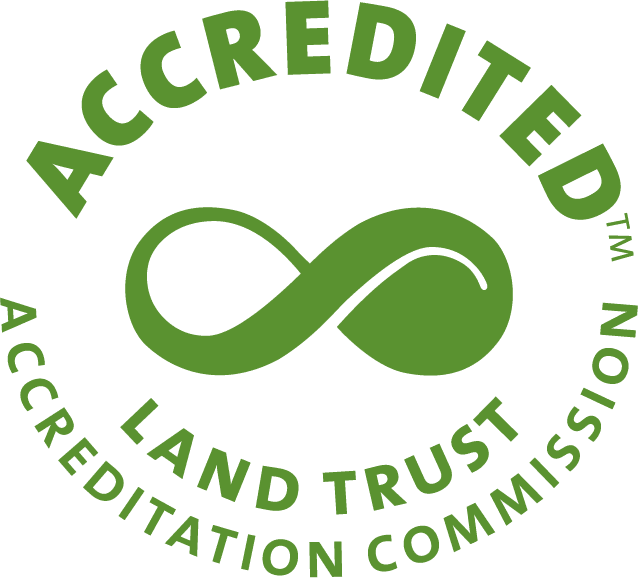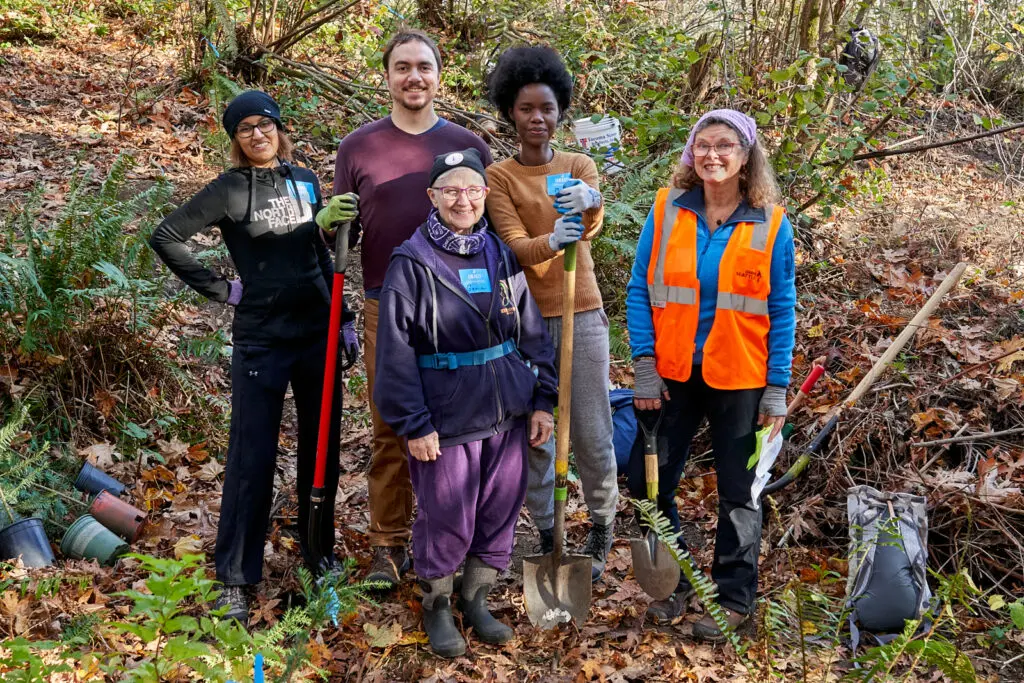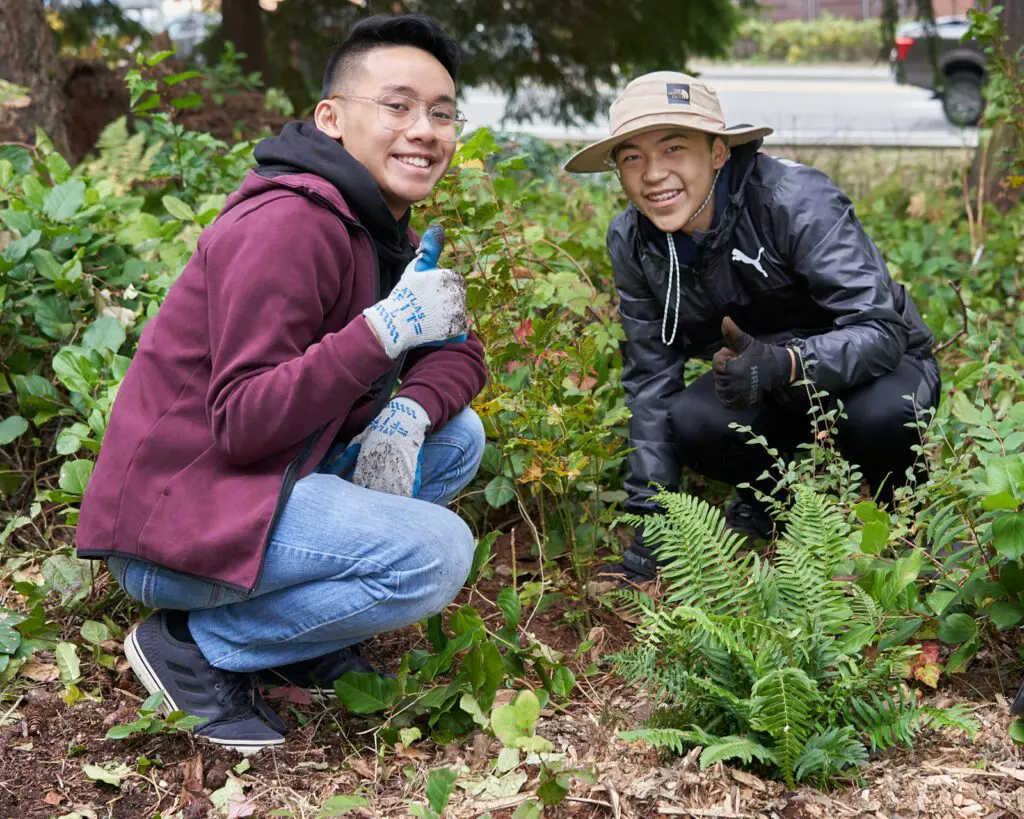This afternoon the regional sustainability organization Forterra turned back the clock. In an unprecedented move, it bought back a subdivision in order to return it to farming. The property’s agricultural soils were poised for destruction, having been platted and permitted for fourteen 10-acre lots and physically prepared for development—including installation of electrical boxes, wells and a paved cul-de- sac driveway. Says Michelle Connor, Executive Vice President of Forterra, “Riverbend Farm’s near-death experience shows what’s possible even at the eleventh hour if good ideas and good people come together. We’re exhilarated to have played a part.”
With the newly purchased property now out of foreclosure, Forterra is raising a further $30,000 to pay back taxes and begin dismantling the subdivision and permanently preserve the 140-acre farm, which is adjacent to the Stillaguamish River and sits on the doorstep of Arlington, defining the town’s historic character as a farming community. Many people in western Washington likely know the area; it includes the well-known Biringer Farm berry-growing operation as well as a number of popular pumpkin patches.
As a final step in this farmland preservation initiative, Forterra has entered into an agreement to sell the farm—together with a conservation easement that permanently protects its agricultural character—to a young third-generation farmer and his veterinarian wife who will be buying their first farmland. The farmer, Andrew Albert, recently won Snohomish Conservation District’s farmer of the year award for modeling best practices in farming operations. As Andrew says about his operation:
My family has farmed here in the Stillaguamish River Valley near Arlington, Washington since 1953. We had a dairy for 40 years and then shifted into crop farming.
Beginning in 2003, I have expanded my operation from fewer than 100 acres to more than 1000, including 600 acres of grass. I saw an opportunity to provide good, locally-grown feed at a good price, direct from the farm to the consumer.
What started out as an FFA project in high school has turned into my career and business. Farming is what I enjoy, and I believe that it is important to enjoy what you do in life, even if you don’t get rich.
Washington state’s vanishing farmland. Over the last decade, Washington has given up 570,000 acres of farmland. That means lost capacity for production in a time when locally-grown food is prized both by cooks and those wanting to shrink their carbon footprint. It also mean sprawl, with impacts on traffic, pollution, and lost rural character.
Says Linda Neunzig, Agriculture Coordinator for Snohomish County, “We thought this land was gone forever for farming but due to the persistence and hard work of many people and organizations we were able to preserve it forever as some of the best farmland in Snohomish County. Conserving this great piece of farmland not only keeps the land in open space but also is one more step in assuring food security throughout the county.”
In addition to Forterra and Snohomish County (its Conservation Futures Fund), other project partners include the City of Arlington, the Washington State Conservation Commission, and the Snohomish Conservation District. Thanks are due, as well, to the offices of Senator Patty Murray and Congresswoman Suzan Delbene who worked with the FDIC to overcome hurdles in unwinding the loan in foreclosure.
The Stillaguamish and Shellfish. Abutting the river and in its floodplain, Riverbend Farm is part of the Stillaguamish Clean Water District, established to address the closure of shellfish beds in nearby Port Susan and South Skagit Bay. The restored farmland will be cared for to minimize toxins and pathogens that could flow into the river, especially during floods. Impacts are sure to be less than with multiple residences on the property, each with a septic system and unpredictable reliance on fertilizers and pesticides.
###
ABOUT FORTERRA
Forterra is an unconventional land trust that works across Washington’s communities and landscapes, from the ranches and shrub-steppe of the Yakima basin, to the estuaries, farms and forests of Washington’s coast, reaching more than 100 counties, cities, towns and rural communities. Working cooperatively with people and nature, Forterra drives land stewardship, management and planning; innovative programs and policies; farming and forestry approaches; community ownership opportunities; and development solutions. Visit www.forterra.org.



